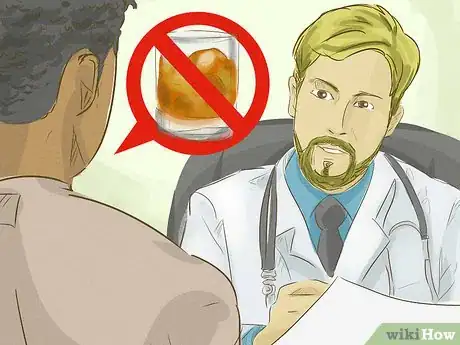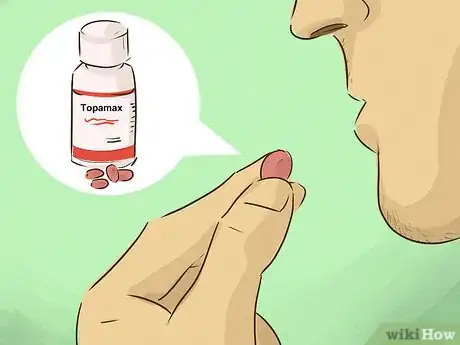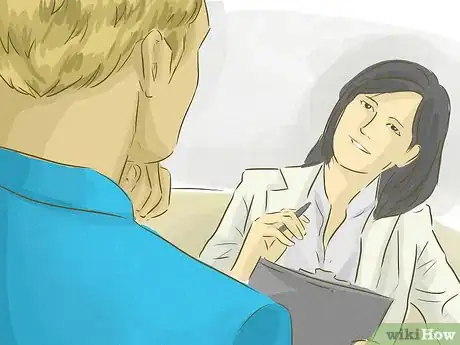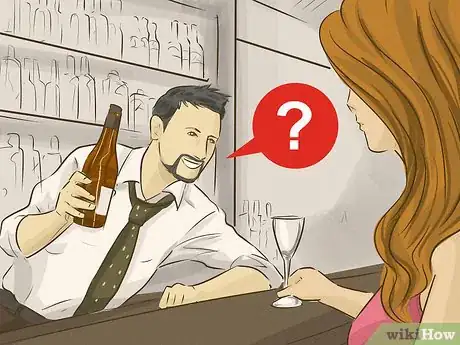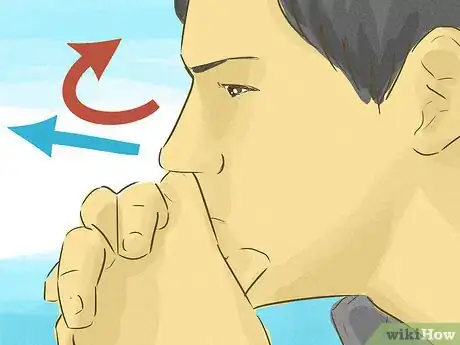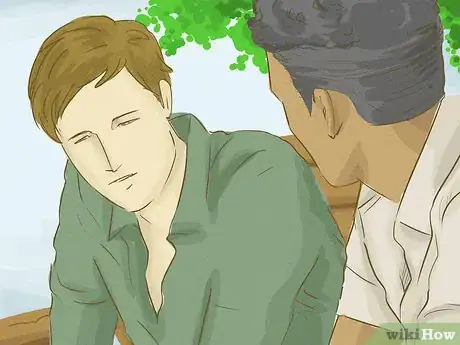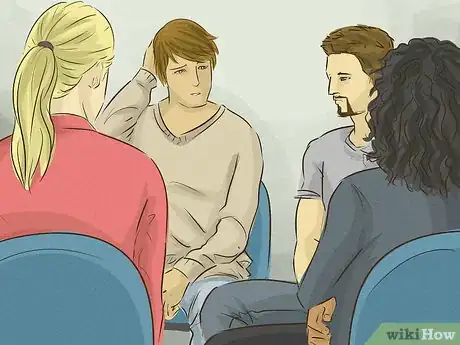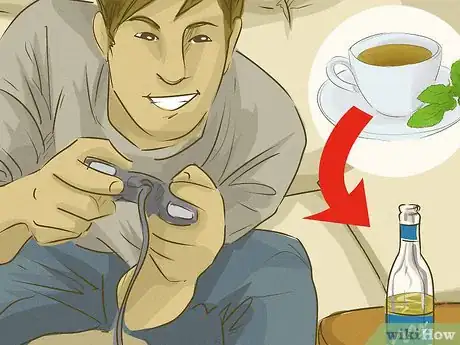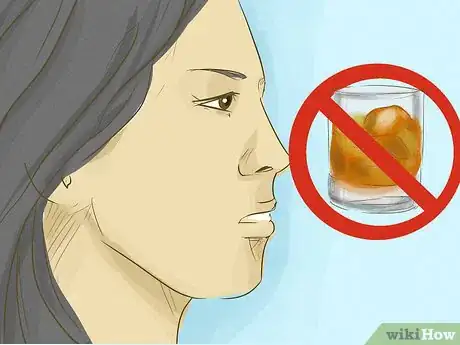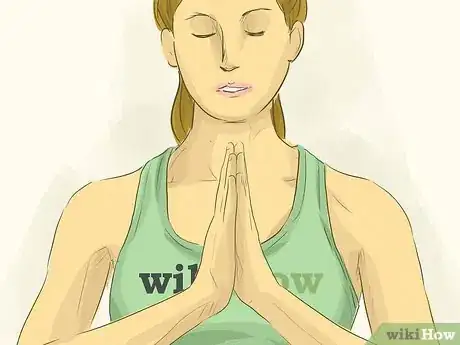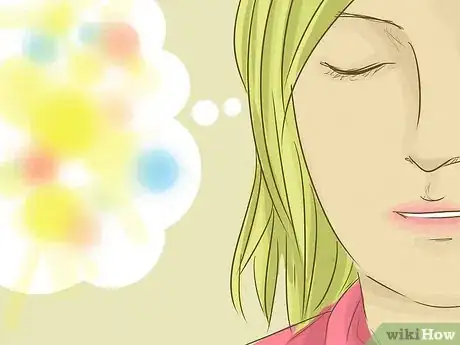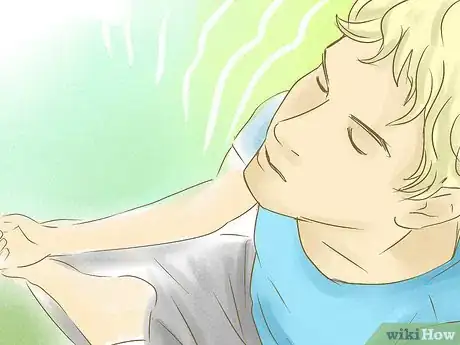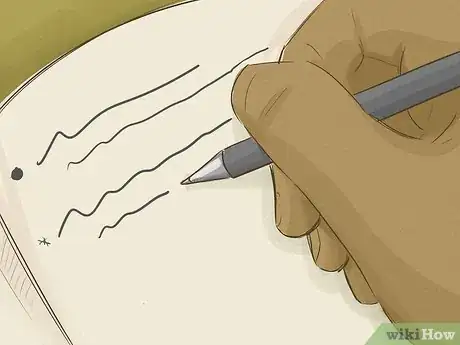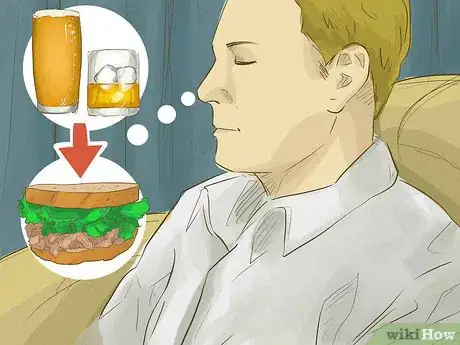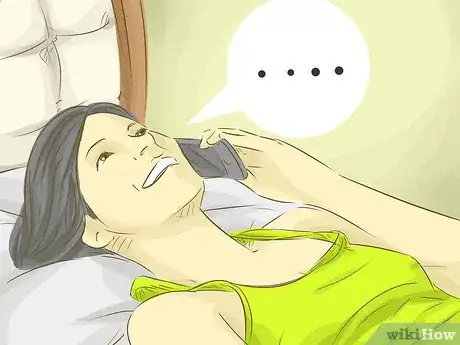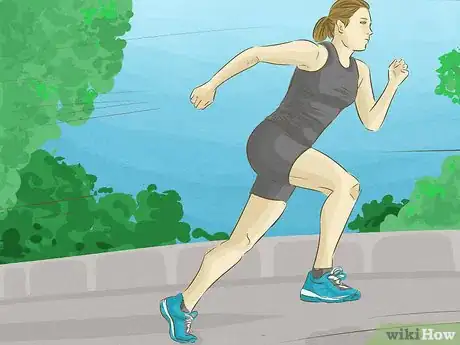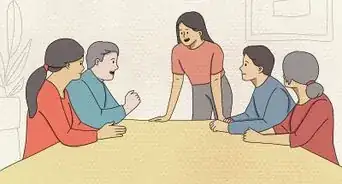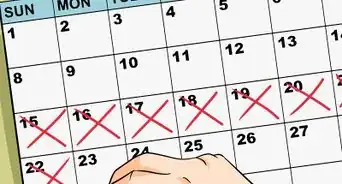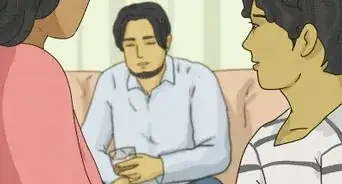This article was co-authored by Trudi Griffin, LPC, MS. Trudi Griffin is a Licensed Professional Counselor in Wisconsin specializing in Addictions and Mental Health. She provides therapy to people who struggle with addictions, mental health, and trauma in community health settings and private practice. She received her MS in Clinical Mental Health Counseling from Marquette University in 2011.
There are 13 references cited in this article, which can be found at the bottom of the page.
wikiHow marks an article as reader-approved once it receives enough positive feedback. In this case, 95% of readers who voted found the article helpful, earning it our reader-approved status.
This article has been viewed 50,552 times.
Alcohol cravings are strong, almost uncontrollable urges that make you want to drink. Even people who are not alcoholics can suffer cravings, especially binge drinkers or those who are used to relying on alcoholic beverages to relieve stress, or calm their nerves. These cravings might make you feel hopeless and weak and can sometimes damage your feelings of stability and happiness. However, there is hope because there are helpful ways to reduce your cravings such as: getting professional help, coping adequately with cravings, using therapeutic techniques, and distracting yourself.
Steps
Getting Professional Help
-
1Talk to your medical doctor. If you drink alcohol heavily or on a daily basis it is very important to talk to a medical doctor if you are planning on cutting down your alcohol use. Withdrawal symptoms in alcoholics can cause seizures, irreparable health damages (such as liver diseases, which includes gastritis, cirrhosis, etc) and can even be fatal.[1]
- Set up an appointment with your primary care physician. If you do not have a medical doctor you can contact your medical insurance company to obtain one. If you do not have medical insurance you can contact your local social services organization for assistance for low-income individuals, or conduct a search for low cost or free clinics in your area.
-
2Explore medication options. The medications topiramate (Topamax) and naltrexone (Vivitrol) are effective in treating alcohol dependence; topiramate is especially helpful in reducing cravings for alcohol.[2] New research suggests that novel medications such as Neurokinin (NK1) receptor antagonist and Baclofen can help to reduce cravings.[3]
- Always discuss medications with your medical doctor before taking them. Understand that there are legal and health risks related to taking medications that are not prescribed to you by a medical practitioner.
Advertisement -
3Consider therapy. Alcohol use is sometimes linked with a history of trauma. Individuals who have experienced trauma (physical abuse, sexual abuse, witnessed violence, or been in a life-threatening situation) and receive treatment for thoughts related to trauma show a reduction in cravings for alcohol.[4]
- Contact your health insurance provider for a list of approved therapists in your area. If you do not have medical insurance you can search for local social services agencies or low-cost/free mental health clinics.
Coping with Cravings
-
1Learn what your triggers are and try to avoid them. Most people tend to associate drinking with some sort of activity, setting, feeling or time of day. Just thinking about socially drinking can lead to increased cravings for alcohol.[5] So, your own thoughts can be triggers to drinking. Negative feelings such as stress and anxiety can also trigger cravings for alcohol.[6]
- Clubbing or going to bars is also often associated with drinking and it might be difficult to stop your cravings when visiting such places and witnessing everyone around you drinking. That is why, at least while your cravings are really strong, you should do your best to avoid such trigger settings.
- You might feel sure that you won’t be tempted to drink, but it is still best not to test yourself, at least in the beginning.
- This is not to say that you should avoid your friends or having fun, just try to do it in places that don’t remind you of alcohol.
-
2Think about the past and focus on the future. Memories from your past can also contribute to cravings. If you start remembering all the good times you had drinking with friends and partying, stop and try to focus on your negative experiences with alcohol instead.[7]
- Think of all those times when you felt physically horrible because of alcohol, or call to your mind the times when you made huge mistakes because you were drunk. Concentrate on how these situations made you feel and tell yourself that you don’t want to feel this way again.
- If you don't like dwelling on negative memories, try concentrating on the future. Try to picture, as vividly as you can, all the wonderful things that will happen to you in the future and think about how alcohol will get in the way of these hopes and dreams.
-
3Seek support from someone you trust. Social support is integral to combating cravings for alcohol. Have you ever been on a diet? As most people who have will let you know, dieting together with friends or family members is much easier than doing it by yourself. This way, when you are craving a piece of moist chocolate cake, you can talk to someone who will help you overcome the craving. The same goes for other types of cravings as well, including those induced by alcohol.
- The first thing you should do on your path to overcoming alcohol cravings is pick one or several people whom you trust and love. Share your experiences with them and ask them not to judge you, because this can only push you further into your cravings, instead of making things easier.
- Next, tell them that you need their support whenever you feel a craving coming on. They can take you out, simply talk on the phone or engage you in any other way. This type of encouragement will go a long way in helping you deal with the cravings.
-
4Contact a local branch of Alcoholics Anonymous. If you don’t yet feel ready to tell a friend or family member about your problem, you can contact an Alcoholics Anonymous group near you. A.A. has a spiritual component and many of the 12-steps involve a relationship with a higher power (which can be anything greater or more powerful than yourself such as a group of people or Mother Nature). Spirituality and religiosity can assist individuals in reducing cravings for alcohol.[8]
- The people there have lots of experience in dealing with this exact sort of problem. Even if you don’t feel you are an alcoholic you can give this option a try, as additional support never hurts.
- Feeling emotionally supported is an incredibly important aspect of overcoming any hardship. That’s because we, as human beings, need other people in order to feel well, especially during difficult periods of our lives.
- Therefore, the emotional support you get from a support group like Alcoholics Anonymous is something that can make or break your willingness to fight the cravings.
-
5Try changing your routine. You are probably used to drinking alcohol while doing certain activities and being around certain people. Over time, your brain gets used to being stimulated by alcohol in these exact situations and therefore craves a drink whenever you are performing this activity. However, this is dangerous and addictive behavior and the best way to break it is by changing your routine.
- For example, if you like having a few drinks while reading, try to change things up a bit – you could read your book in the park or go to a library, where you won't be able to take alcohol with you.
- Another option is to make yourself some tea, freshly squeezed juice or another non-alcoholic beverage. This way your brain will still get what it is used to because you will be drinking something. With time, you will be able to substitute another drink for alcohol and not even miss it.
-
6Be patient and stay focused. Alcohol cravings are something that you may need to deal with long after you have sobered up. However, they will get easier to deal with over time, so it's important to be patient and to have faith in yourself.
- Even though it can sometimes feel overwhelming, you should always remember that you are much stronger than the cravings and life without alcohol holds much more diversity and happiness.
- Some of the techniques to deal with cravings might seem a bit silly or awkward at first, but don’t write them off without trying them at least ones or twice – it might turn out that the one that seems the silliest works best for you.
Using Therapeutic Techniques to Reduce Cravings
-
1Learn relaxation techniques. Many people use alcohol to help them relax or de-stress. Stress can increase the likelihood of cravings for alcohol.[9] If you are used to having a few drinks after a hard day of work or after an argument with a loved one, it might be difficult to stop the cravings when those situations occur. Relaxation techniques are useful ways to calm you down and can serve as a coping resource for cravings and a replacement for alcohol use.
- If you learn to ease your tension you will not only be less likely to drink impulsively, you would also have better chances of becoming happier and more stable. An added bonus is that there are literally thousands of relaxation techniques out there and you can find the one that works best for you.[10]
- One very popular technique, progressive muscle relaxation, is to sit down in a calm and comfortable place and close your eyes. Next, concentrate on each single part of your body, starting from your toes and finishing at the top of your head. Concentrate on a single part at a time, tense it up and then release – repeat a few times. This technique might really help in situations when you are feeling angry or frustrated.
- However, you should keep in mind that relaxation methods are not something that can magically cure your cravings for alcohol. You need to be persistent and continue to practice.
-
2Use imagery. The visual powers of your brain are incredibly strong and can really help you deal with cravings, if you use them correctly.[11] Seeing something, or imagining something very vividly, stays with you for much longer than simply thinking or hearing something. That is why your imagination can be huge help when fighting cravings. There are many ways to use your imagination, and even though at first they might seem silly or difficult to do, with time your brain will get used to the idea and employing the right images will become increasingly effortless.
- If you find yourself imagining or thinking about drinking, immediately imagine a different scenario. Simply imagining drinking can lead to increased cravings for alcohol.[12]
- One thing you can do when you get a craving is imagine a huge, bright and pulsating stop sign. Concentrate on that image, while telling yourself that you will ride out the craving.
-
3Be mindful of your cravings through urge surfing. Urge surfing is a tried and true technique to manage cravings and reduce problematic drinking.[13] [14] It is based on mindfulness - being aware of the present moment, including your feelings, thoughts, behaviors, and environment. By urge surfing you can learn to understand and tolerate your cravings. Some people experience a reduction in the craving after urge surfing.
- Start by being in a comfortable position. Focus on the experience of craving alcohol. Where do you experience it in your body? Perhaps you first experience stress, which you feel through tenseness in your muscles and a headache. Your stress may trigger your craving for alcohol. Then perhaps you feel your craving in your mouth, throat, and chest. Notice any bodily sensations and how they change while you are experiencing your craving. Be aware of your thoughts about the craving.
-
4Try writing as a form of self-therapy. You don’t have to be a professional author to explore the power of the written word. Writing messages to yourself can be a very strong tool in dealing with cravings.
- It is important to write those memos when you are feeling well and happy, so that you will be reminded of these positive feelings when cravings flood in. This technique is very helpful, because, as we already mentioned above, having things written down, makes you subconsciously believe they have more value.
- One way to do that is by taking large and small pieces of paper and recording your achievements on them. You can write anything you want, especially things that make you feel proud or make you laugh. For instance, it can be something along the lines of “Things are going so great with my partner, we really understand each other much better now that I am not drinking” or “Exercising is going great now! I can do 15 more sit-ups.”
- You can also write down things which you would like to do in the future - learn a dance, get a promotion, travel to a certain place. Generally speaking, anything that is motivating to you and that you know you wouldn’t be able to do if you give in to the cravings. Stick those pieces of paper where you can easily see them – places like the wall across from your bed, the refrigerator door, the bathroom mirror, etc.
Distracting Yourself From Cravings
-
1Try your best to think about something other than the craving. Even though this technique seems oddly obvious, it does wonders. When you start craving something, your mind’s automatic response is to close in on the thought, making it stronger and more painful by the second. That is why it is usually incredibly helpful to force yourself to think about something else.
- When concentrating on something else, you distract your brain, so to speak, and so the thought of alcohol is pushed to the back of your mind, in order to give way to the topic at hand.
- Of course, do not tell yourself, “I want to drink but I am not going to think about it” – this is almost impossible to do; by trying not to think of something you just end up thinking about it more.
-
2Experiment with different distraction techniques. Instead of focusing on your cravings, try starting a conversation with somebody (if you're home alone you can phone a friend), or look around and try to describe to yourself every single detail of your surroundings– don’t miss any color, texture, shape or position.
- Try grounding techniques to distract yourself from emotional pain. Try running your hands in cold or warm water, or counting and naming the colors you see around you. There are hundreds of different grounding techniques you can find online and try today![15]
- Another thing you can do is play a game of your choosing. Chess, board games or video games will all do the trick of occupying your mind.
- If you have a pet, like a dog, you can play with him, try to teach him new tricks or take him out for a walk.
- Cleaning can also be very distracting in such situations, especially if you try to concentrate on those especially difficult to reach spots of the house.
-
3Find some new activities. One of the worst things about alcohol is that it slowly but surely deprives you of any hobbies and activities that you might have enjoyed prior to drinking. In fact, if you have been drinking heavily for a while, this has probably become your biggest source of entertainment. Therefore quitting can cause a serious problem – boredom, which can make you want a drink even more. Changing your lifestyle by engaging in new activities is a great way to reduce the risks of boredom.
- If you want to get yourself out of this vicious circle, it is a good idea to look at some activities that might interest you. It can be virtually anything, as long as it does not remind you of alcohol. For instance, you can sign up for a sport, an arts and crafts class or learn a new language.
- You can also take short trips to nearby towns or make a habit of taking part in cultural events. It's best if you can schedule these activities in advance. This way, when you get a craving, you will have something to look forward to and think about.
- In addition, new activities will build your confidence and the increased confidence will help with cravings. Increased confidence will also help keep you away from alcohol, because you will no longer need it to feel good.
References
- ↑ http://pubs.niaaa.nih.gov/publications/arh22-1/61-66.pdf
- ↑ https://www.researchgate.net/publication/5369759_Using_Topiramate_or_Naltrexone_for_the_Treatment_of_Alcohol-Dependent_Patients
- ↑ http://alcalc.oxfordjournals.org/content/42/2/158
- ↑ http://www.ncbi.nlm.nih.gov/pmc/articles/PMC3213324/
- ↑ http://www.ncbi.nlm.nih.gov/pmc/articles/PMC2615382/
- ↑ https://www.nature.com/articles/npp200878
- ↑ http://www.ncbi.nlm.nih.gov/pmc/articles/PMC2615382/
- ↑ http://ro.uow.edu.au/cgi/viewcontent.cgi?article=1996&context=hbspapers
- ↑ http://pubs.niaaa.nih.gov/publications/arcr344/432-440.htm
- ↑ http://www.get.gg/relax.htm
- ↑ http://www.get.gg/imagery.htm
- ↑ http://www.ncbi.nlm.nih.gov/pmc/articles/PMC2615382/
- ↑ http://pubs.niaaa.nih.gov/publications/arh23-2/151-160.pdf
- ↑ https://contextualscience.org/system/files/Ostafin,2007.pdf
- ↑ http://www.peirsac.org/peirsacui/er/educational_resources10.pdf
